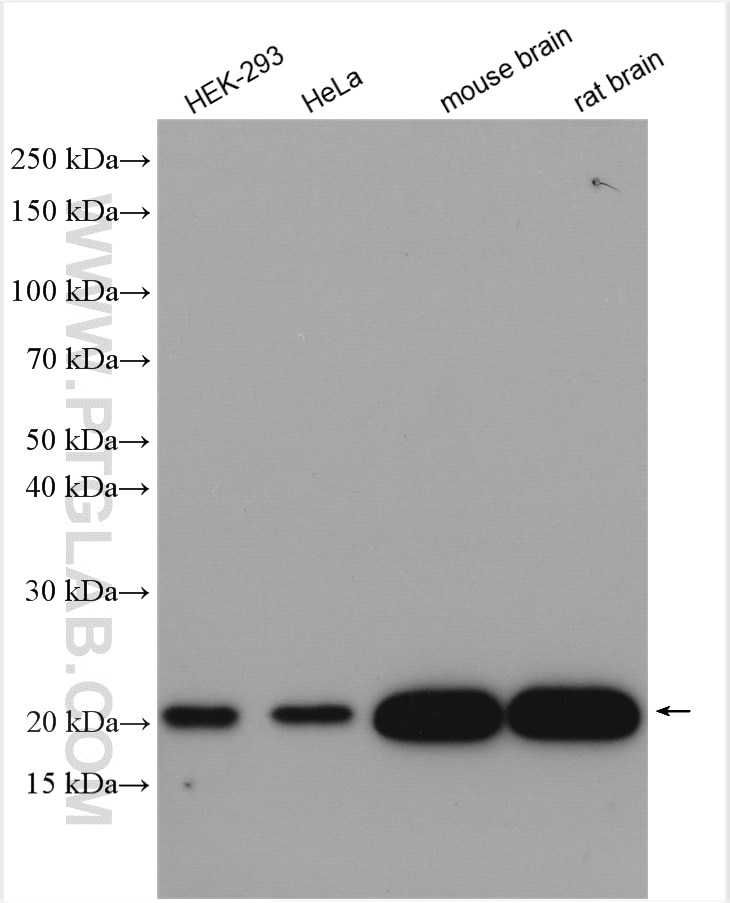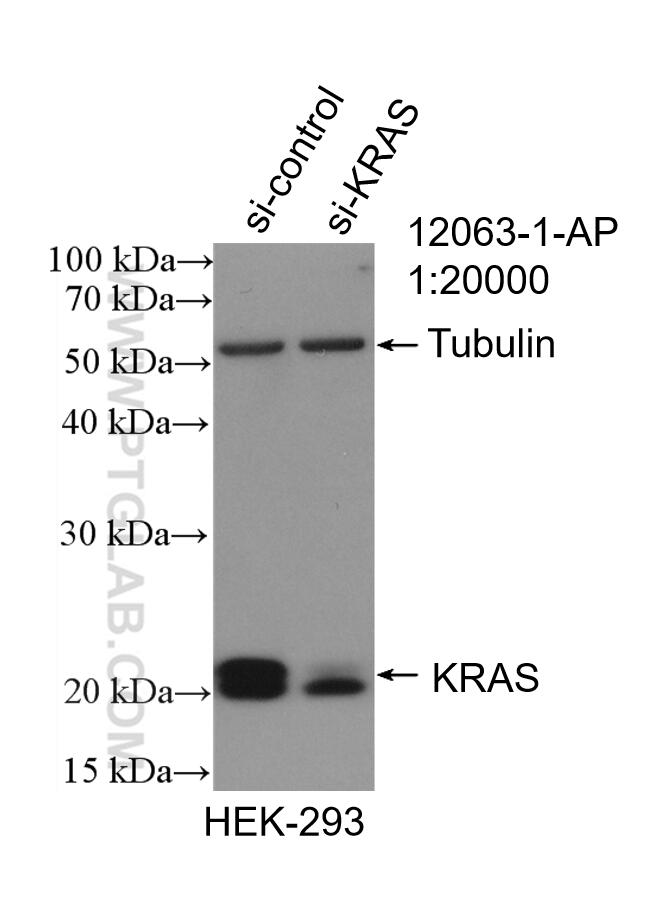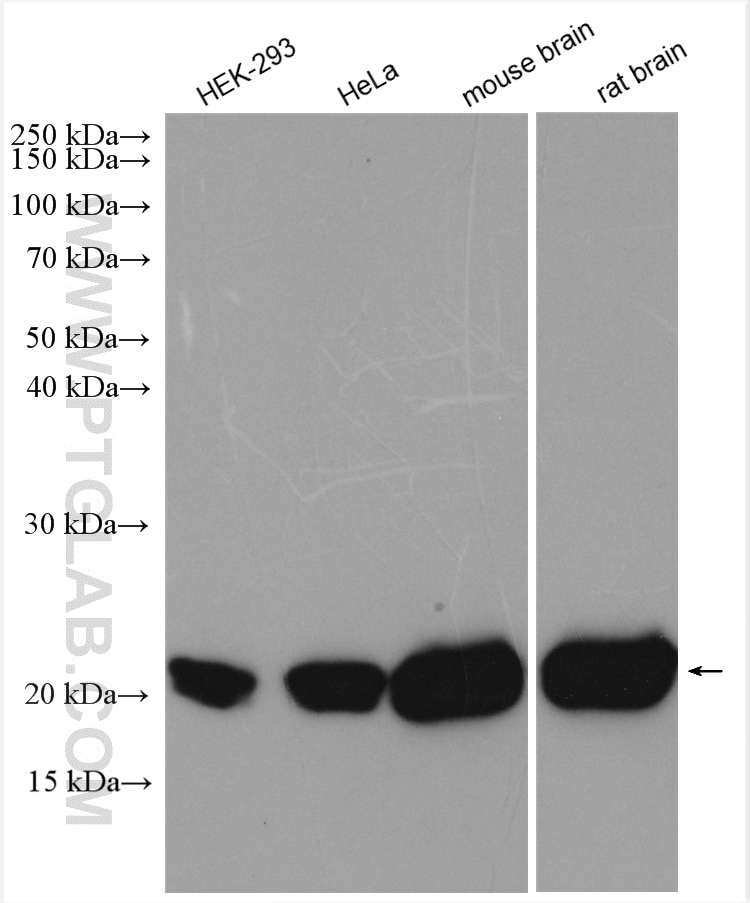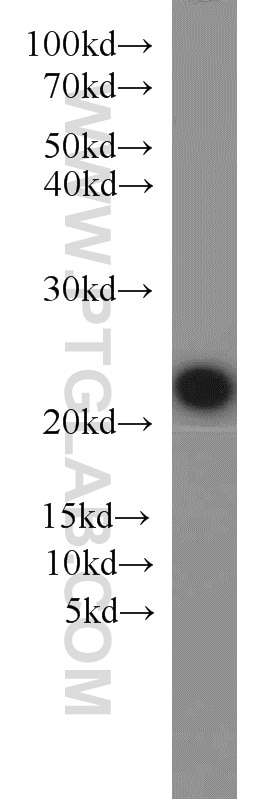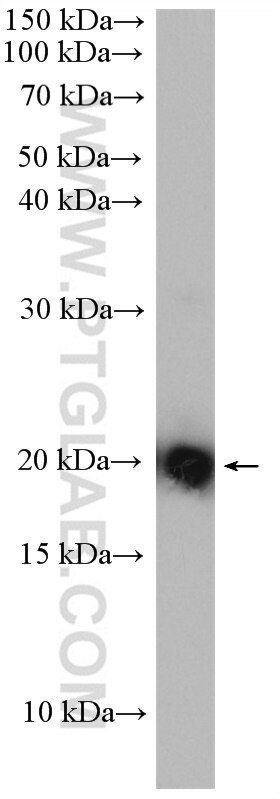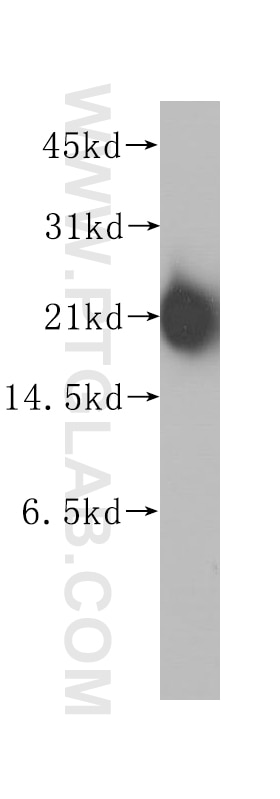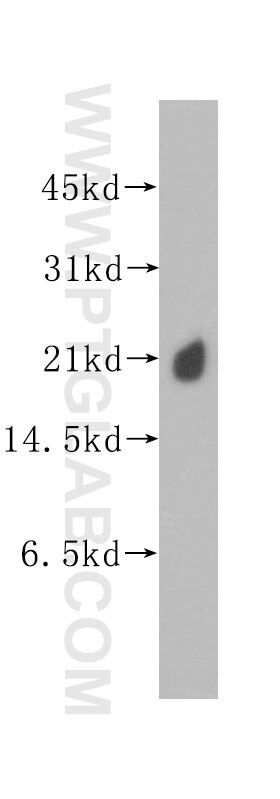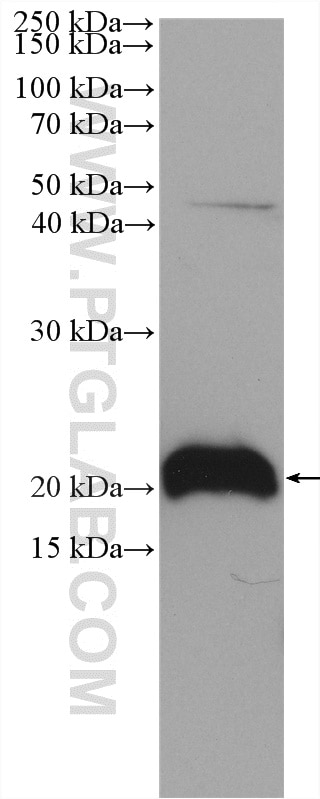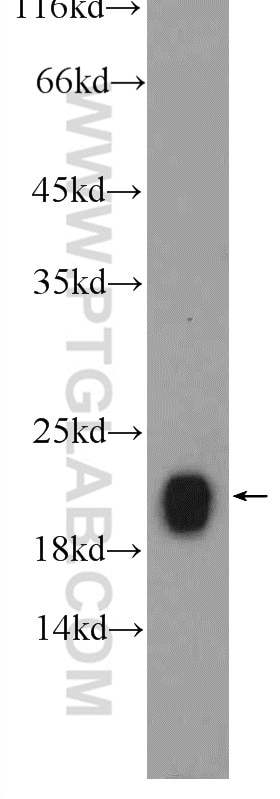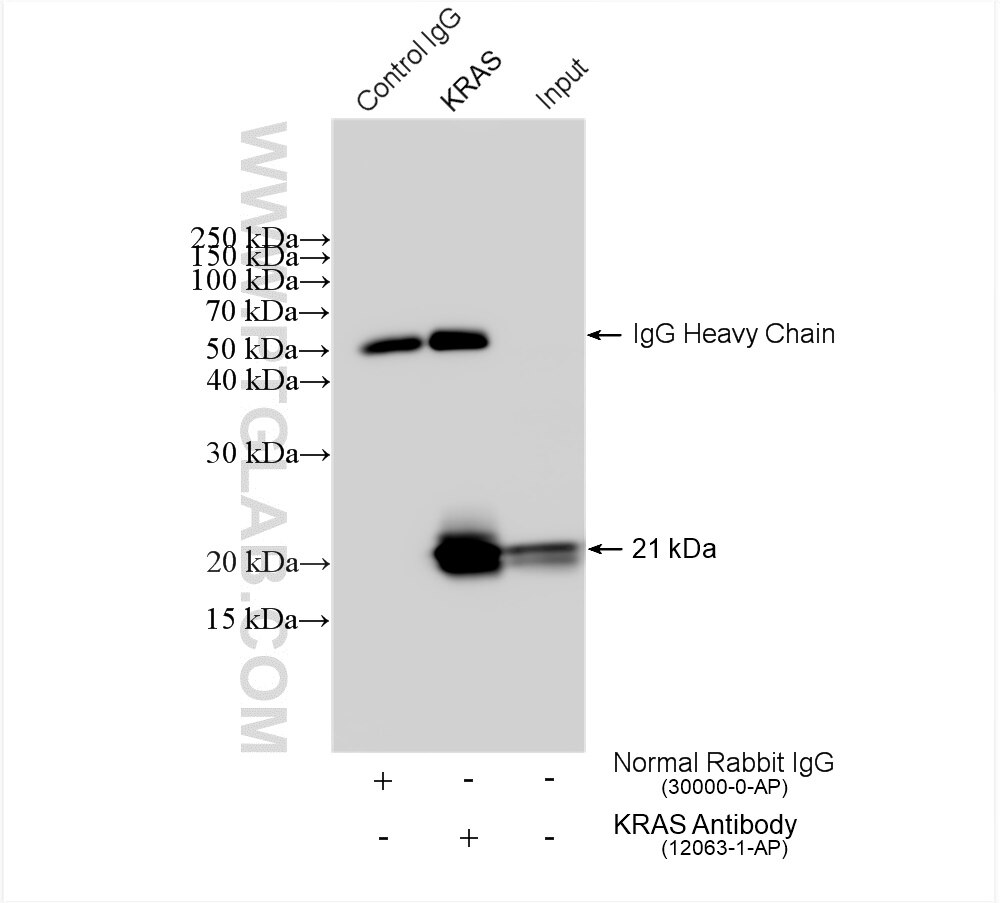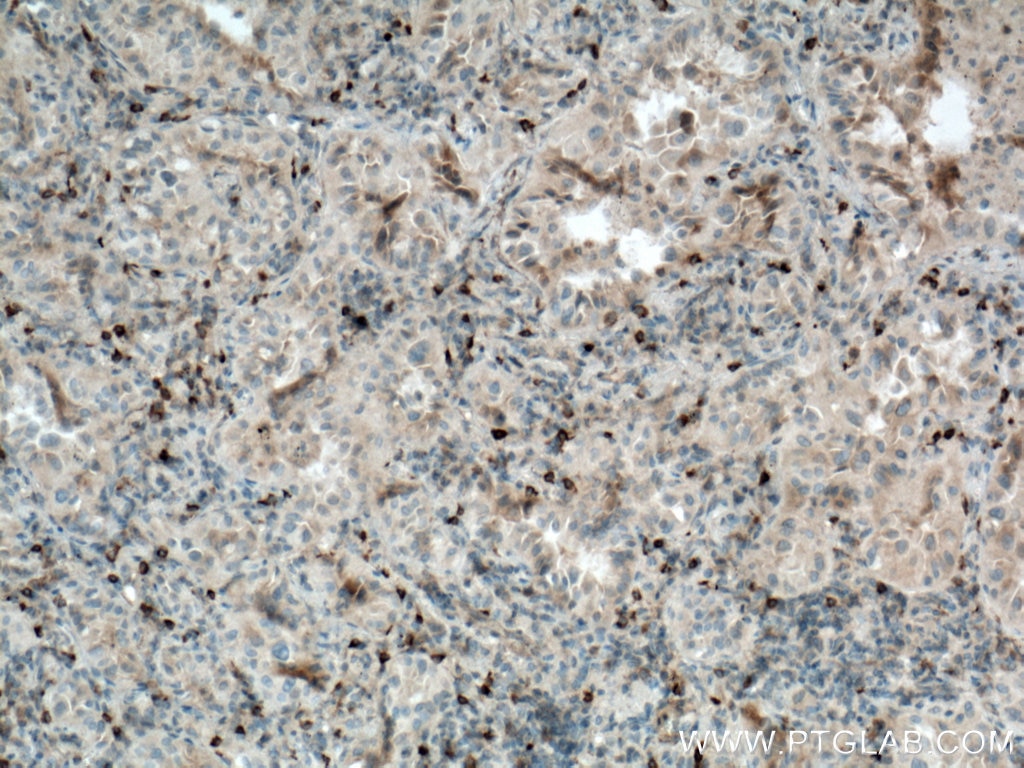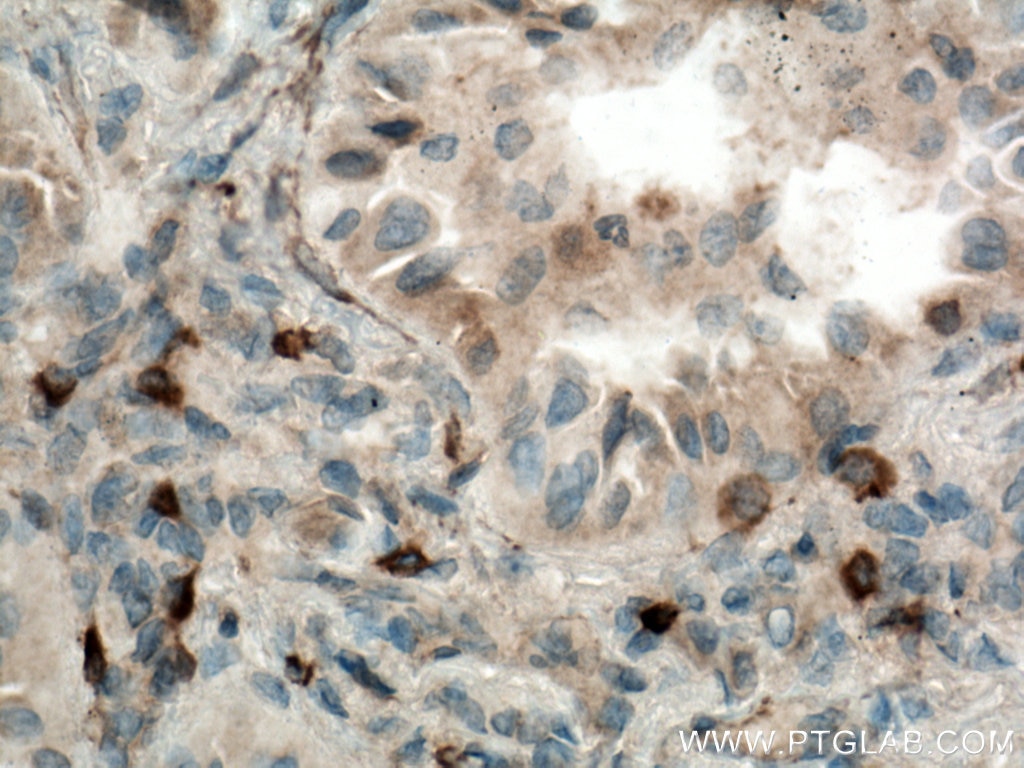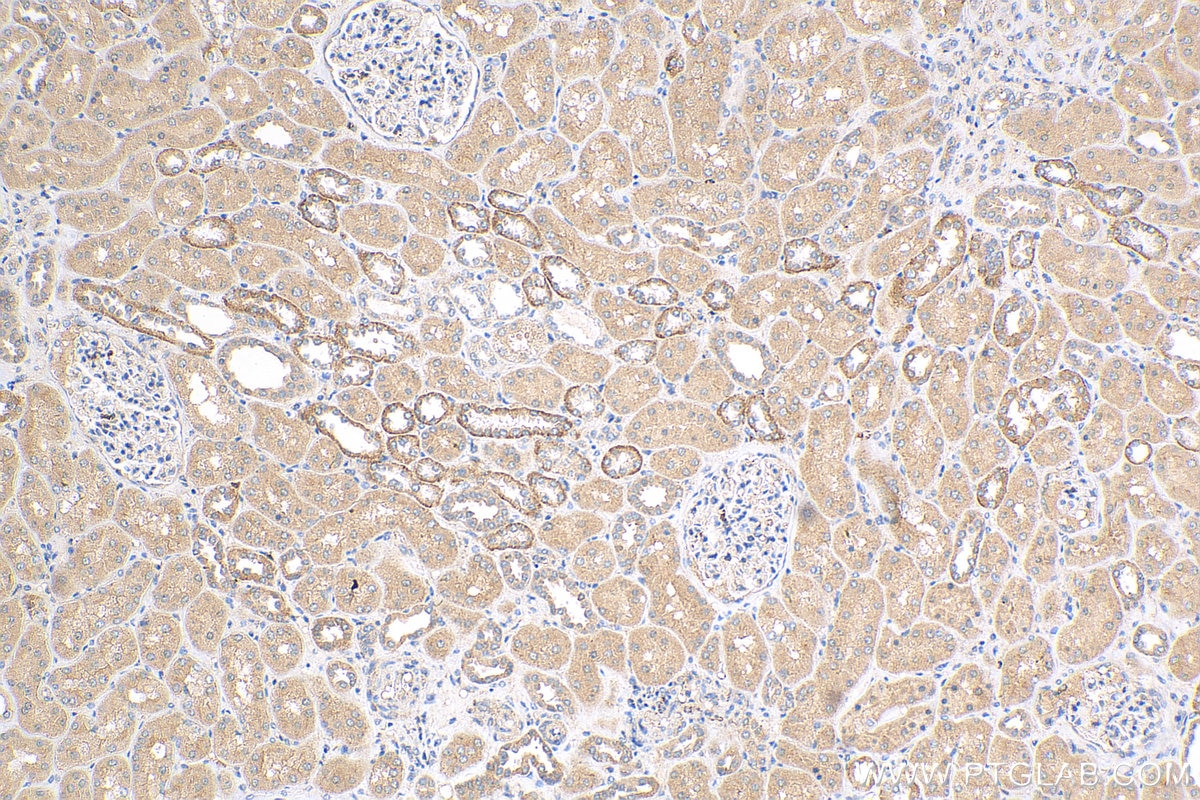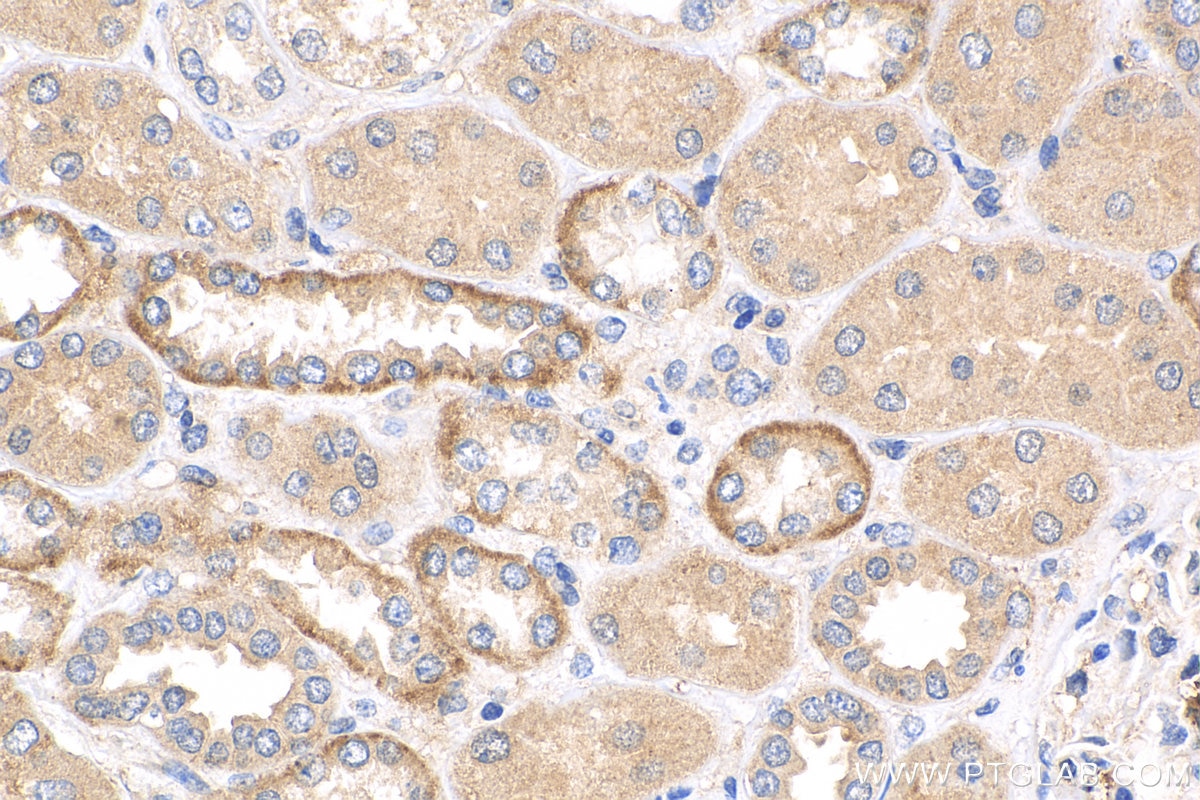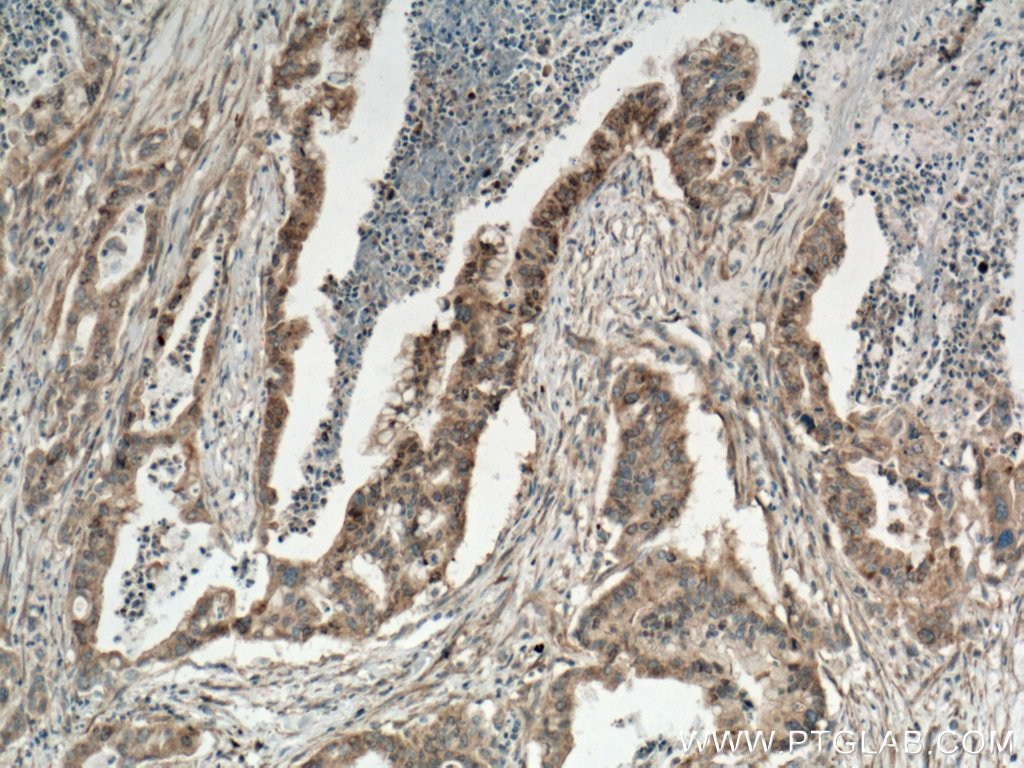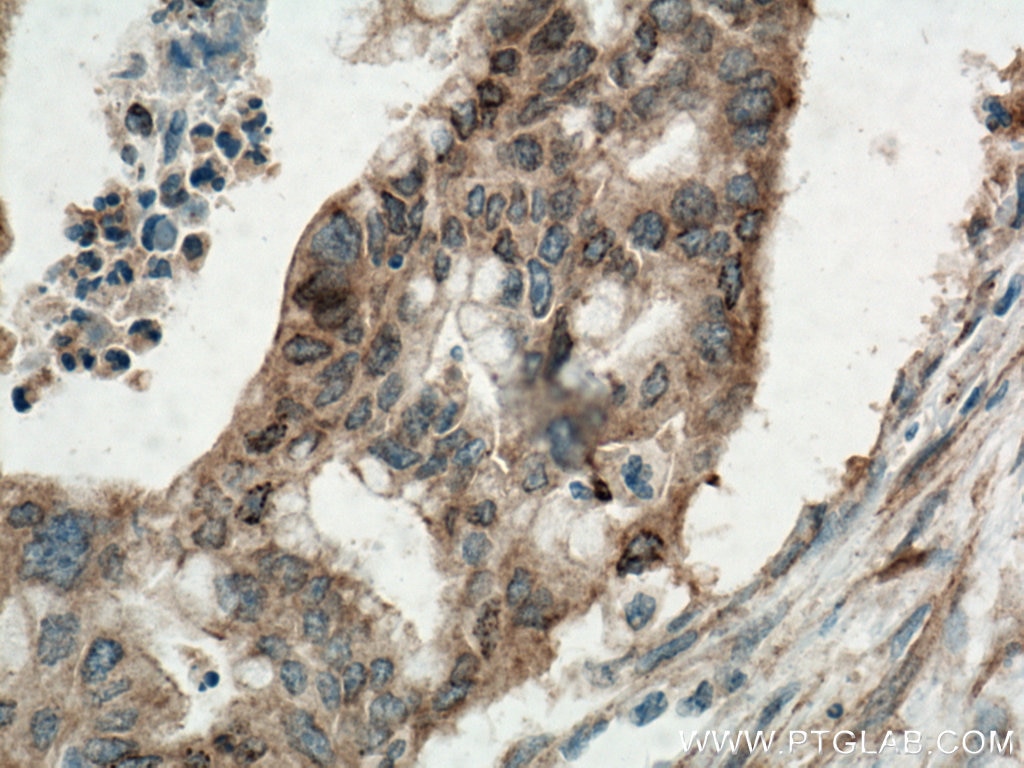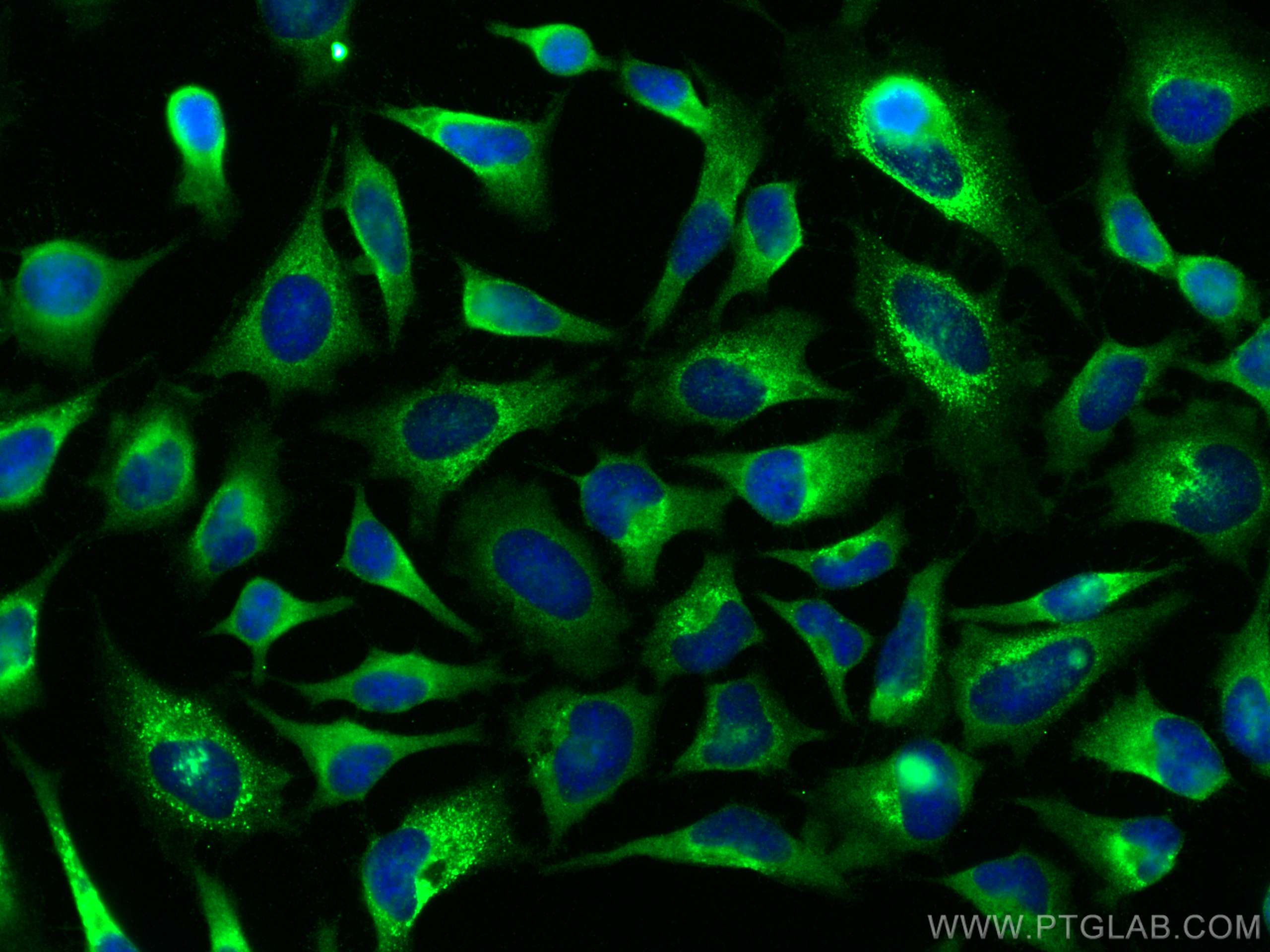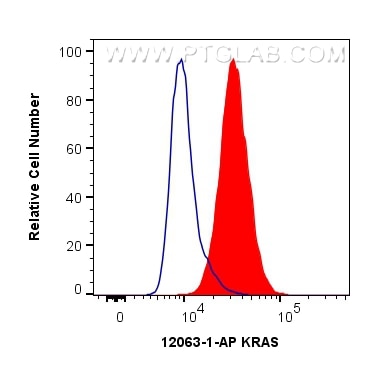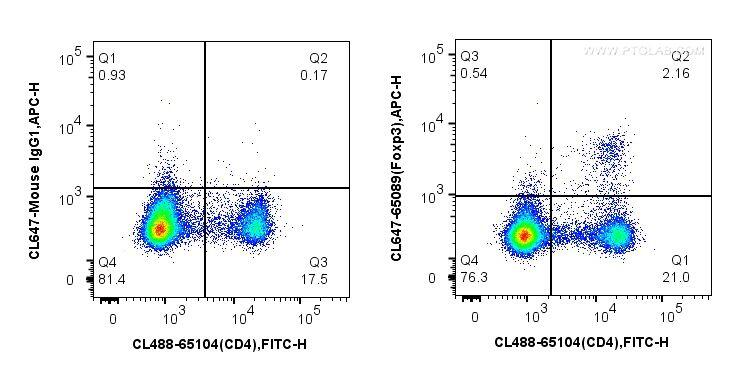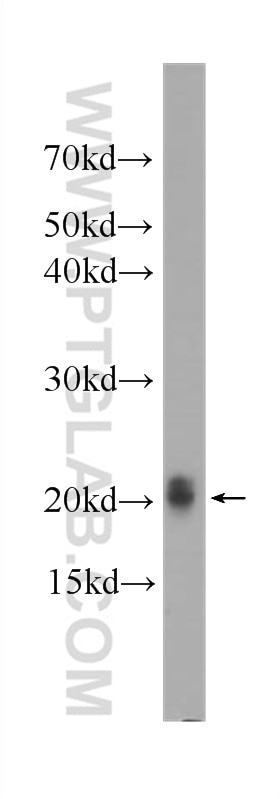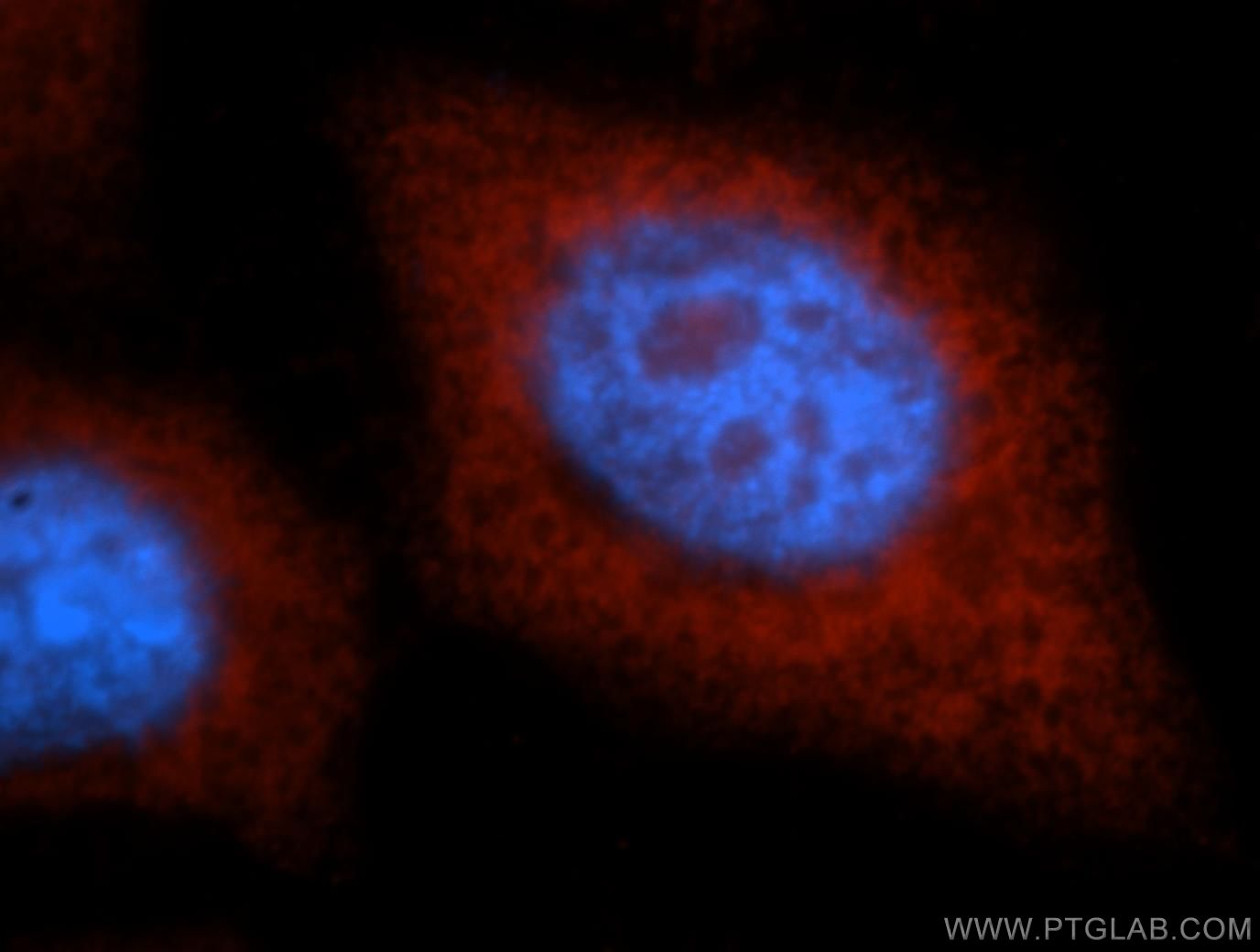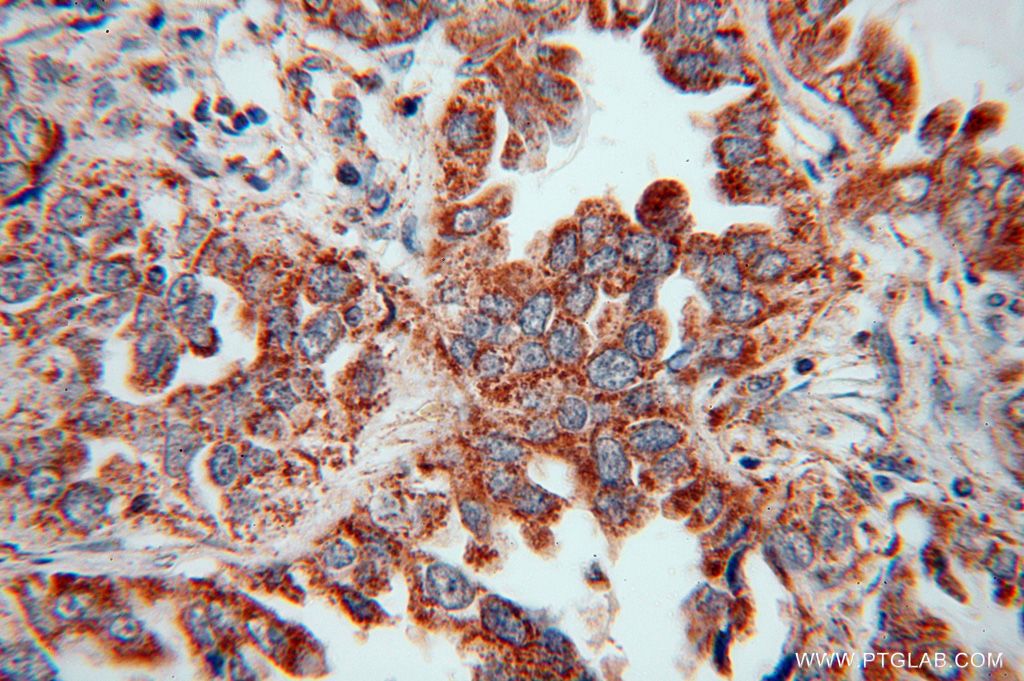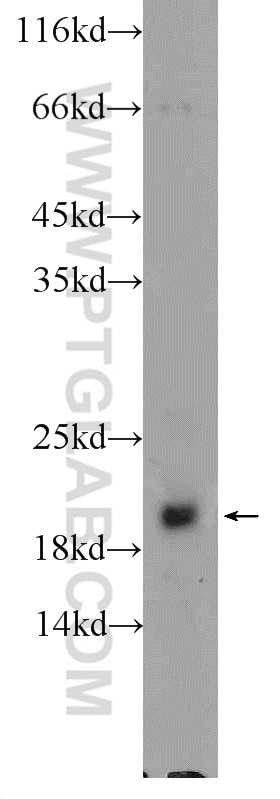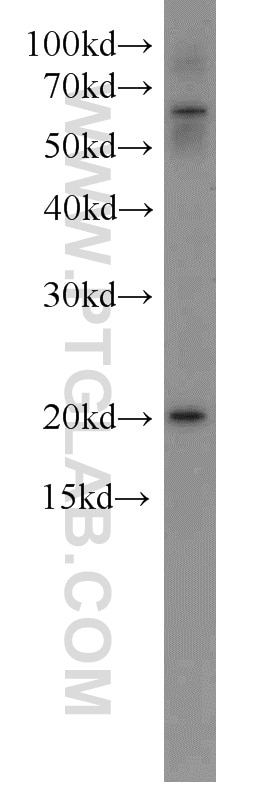- Phare
- Validé par KD/KO
Anticorps Polyclonal de lapin anti-KRAS
KRAS Polyclonal Antibody for WB, IHC, IF/ICC, FC (Intra), IP, ELISA
Hôte / Isotype
Lapin / IgG
Réactivité testée
Humain, rat, souris et plus (1)
Applications
WB, IHC, IF/ICC, FC (Intra), IP, ELISA
Conjugaison
Non conjugué
126
N° de cat : 12063-1-AP
Synonymes
Galerie de données de validation
Applications testées
| Résultats positifs en WB | cellules HEK-293, cellules A549, cellules HeLa, tissu cérébral de rat, tissu cérébral de souris, tissu cérébral humain, tissu hépatique de rat, tissu rénal de rat, tissu rénal de souris, tissu rénal humain |
| Résultats positifs en IP | cellules HeLa, |
| Résultats positifs en IHC | tissu de cancer du poumon humain, tissu de cancer du pancréas humain, tissu rénal humain il est suggéré de démasquer l'antigène avec un tampon de TE buffer pH 9.0; (*) À défaut, 'le démasquage de l'antigène peut être 'effectué avec un tampon citrate pH 6,0. |
| Résultats positifs en IF/ICC | cellules HeLa, |
| Résultats positifs en FC (Intra) | cellules HeLa, |
Dilution recommandée
| Application | Dilution |
|---|---|
| Western Blot (WB) | WB : 1:5000-1:50000 |
| Immunoprécipitation (IP) | IP : 0.5-4.0 ug for 1.0-3.0 mg of total protein lysate |
| Immunohistochimie (IHC) | IHC : 1:400-1:1600 |
| Immunofluorescence (IF)/ICC | IF/ICC : 1:200-1:800 |
| Flow Cytometry (FC) (INTRA) | FC (INTRA) : 0.40 ug per 10^6 cells in a 100 µl suspension |
| It is recommended that this reagent should be titrated in each testing system to obtain optimal results. | |
| Sample-dependent, check data in validation data gallery | |
Applications publiées
| KD/KO | See 13 publications below |
| WB | See 109 publications below |
| IHC | See 19 publications below |
| IF | See 10 publications below |
| IP | See 1 publications below |
Informations sur le produit
12063-1-AP cible KRAS dans les applications de WB, IHC, IF/ICC, FC (Intra), IP, ELISA et montre une réactivité avec des échantillons Humain, rat, souris
| Réactivité | Humain, rat, souris |
| Réactivité citée | rat, Humain, poulet, souris |
| Hôte / Isotype | Lapin / IgG |
| Clonalité | Polyclonal |
| Type | Anticorps |
| Immunogène | KRAS Protéine recombinante Ag2700 |
| Nom complet | v-Ki-ras2 Kirsten rat sarcoma viral oncogene homolog |
| Masse moléculaire calculée | 188 aa, 21 kDa |
| Poids moléculaire observé | 21 kDa |
| Numéro d’acquisition GenBank | BC013572 |
| Symbole du gène | KRAS |
| Identification du gène (NCBI) | 3845 |
| Conjugaison | Non conjugué |
| Forme | Liquide |
| Méthode de purification | Purification par affinité contre l'antigène |
| Tampon de stockage | PBS avec azoture de sodium à 0,02 % et glycérol à 50 % pH 7,3 |
| Conditions de stockage | Stocker à -20°C. Stable pendant un an après l'expédition. L'aliquotage n'est pas nécessaire pour le stockage à -20oC Les 20ul contiennent 0,1% de BSA. |
Informations générales
KRAS, also called p21, is a member of the Ras superfamily of proteins. It is located on human chromosome 12, and contains four coding exons and a 5' non-coding exon (PMID: 12778136). KRAS is a membrane-anchored guanosine triphosphate/guanosine diphosphate (GTP/GDP)-binding protein and is widely expressed in most human cells. Like other members of the Ras family, the KRAS protein is a GTPase, and it is involved in intracellular signal transduction and mainly responsible for EGFR-signaling activation (PMID: 19117687). KRAS mutations have been found in various malignancies, including lung adenocarcinoma, mucinous adenoma, ductal carcinoma of the pancreas and colorectal carcinoma.
Protocole
| Product Specific Protocols | |
|---|---|
| WB protocol for KRAS antibody 12063-1-AP | Download protocol |
| IHC protocol for KRAS antibody 12063-1-AP | Download protocol |
| IF protocol for KRAS antibody 12063-1-AP | Download protocol |
| IP protocol for KRAS antibody 12063-1-AP | Download protocol |
| FC protocol for KRAS antibody 12063-1-AP | Download protocol |
| Standard Protocols | |
|---|---|
| Click here to view our Standard Protocols |
Publications
| Species | Application | Title |
|---|---|---|
Nat Biotechnol Conformation-locking antibodies for the discovery and characterization of KRAS inhibitors. | ||
Cancer Discov Systematic functional interrogation of rare cancer variants identifies oncogenic alleles. | ||
Mol Cell The oncomicropeptide APPLE promotes hematopoietic malignancy by enhancing translation initiation. | ||
Avis
The reviews below have been submitted by verified Proteintech customers who received an incentive forproviding their feedback.
FH Sophy (Verified Customer) (12-22-2022) | I have tried the KRas antibody from a lot of companies and this one from proteintech definitely has been working the best for me.
|
FH Jonas (Verified Customer) (07-29-2022) | Antibody works as expected, dilution with 1:2000 was perfect and could even be increased to 1:5000; delivery was very fast, would recommend!!
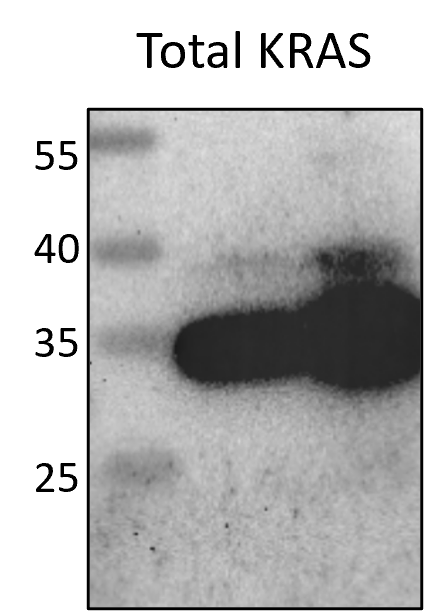 |
FH Usman Shah (Verified Customer) (11-29-2021) | Enables specific detection of KRAS in WBs.
|
FH Kishor (Verified Customer) (12-13-2018) | I am very much satisfied with this antibody. I got good results for cells and rat liver tissue protein.
|
FH Christopher (Verified Customer) (12-11-2018) | Antibody is much better than comparable antibodies. Because of weak expression an very low differences between K-Ras/H-Ras/N-Ras it's quite difficult to detect only K-Ras in a specific way. That is also the problem of this antibody. Please look at my attached blot. 1. Fermentas prestained marker2. PANC-1 whole cell lysate3. PANC-1/EGFP-K-Ras4. HEK293/EGFP-K-Ras5. HEK293/EGFP-H-Ras6.HEK293/EGFP-N-Ras7. 20 ng recombinant K-Ras (His-tagged)Unfortunately, K-Ras (12063-1-AP) recognizes also H-Ras and in less amounts N-Ras. Looking at endogenous K-Ras detection, you have to keep in mind, that the upper band is K-Ras and the lower one H-Ras. Because of the fact, that N-Ras is only recognized in very low amounts (probably almost not on endogenous level) this antibody is great detecting endogenous K-Ras in whole cell lysates with some little problems
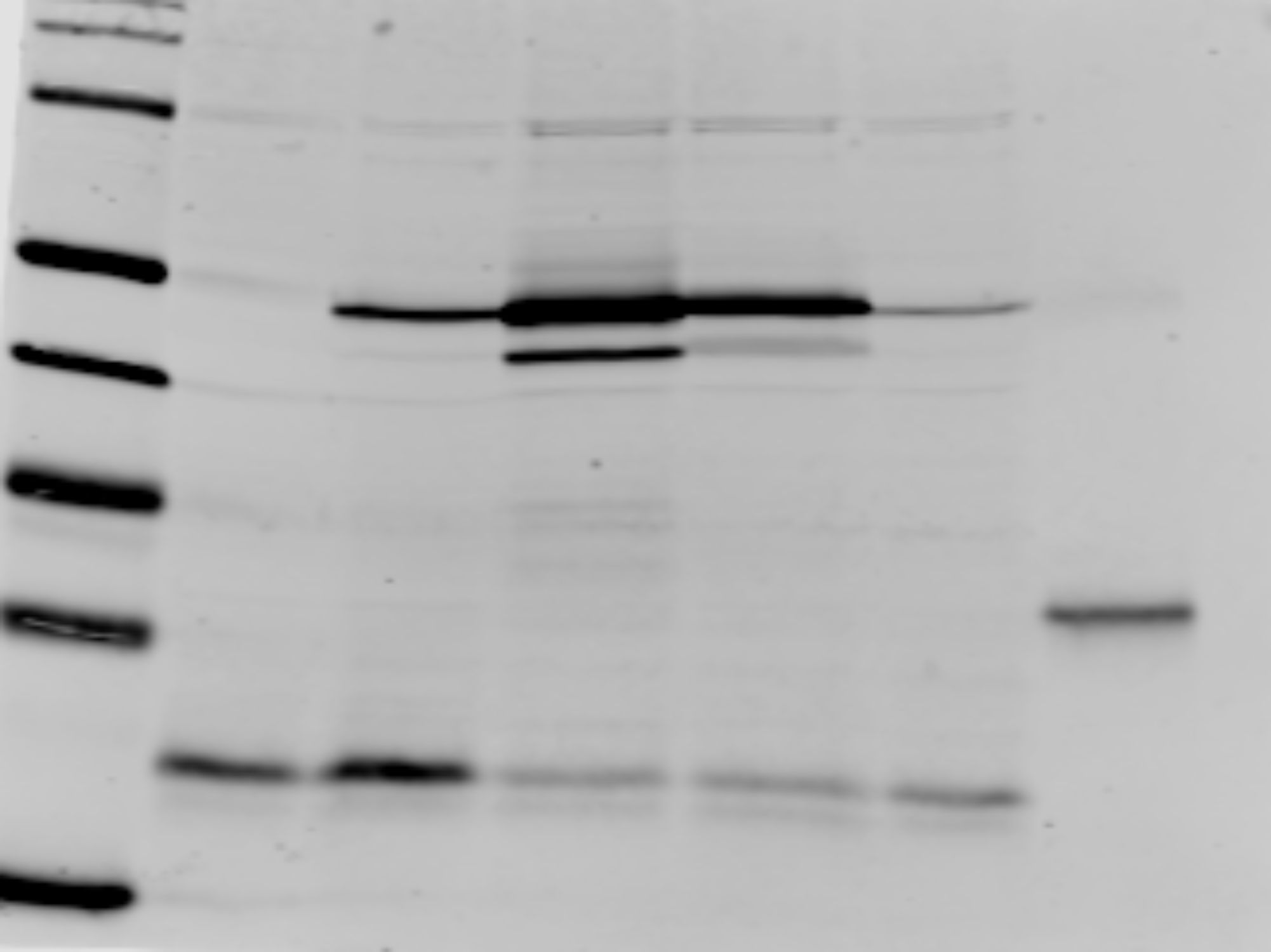 |
